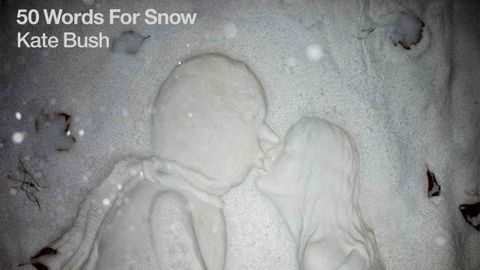Typical: you wait years for a new Kate Bush album, then two come along at once. Revitalised by her archive makeover project Director’s Cut, the 53-year-old art-rock icon returns with this expansive and confident wintry symphony.
Bush’s last original album, Aerial in 2005, was rapturously received but leaned dangerously far into overly polished, Peter Gabriel-style ambi-rock maturity. Thankfully, 50 Words For Snow is a more supple and experimental affair, with a contemporary chamber-pop sound grounded in crisp piano, minimal percussion and light-touch electronics.
Of course, old-school Bush fans expecting a return to hook-heavy witch-pop sensuality will be disappointed. These compositions, none below seven minutes long, unravel into billowing jazz-rock soundscapes interwoven with fragmentary narratives delivered in a range of voices, from shrill trilling to Laurie Anderson-style cooing.
Elton John duets warmly on Snowed In At Wheeler Street, a soulful fairy tale of New York, while Stephen Fry shares the title track, a whimsical Floydian folly and arguably the only failed experiment here.
Most strikingly, instead of revisiting her 1970s prog-pop roots, Bush seems to tap a 21st century vein of pastoral Englishness that chimes with recent avant-folk excursions by Polly Harvey and Radiohead.
The snow queen of Albion’s Electric Eden is back to reclaim her throne.


